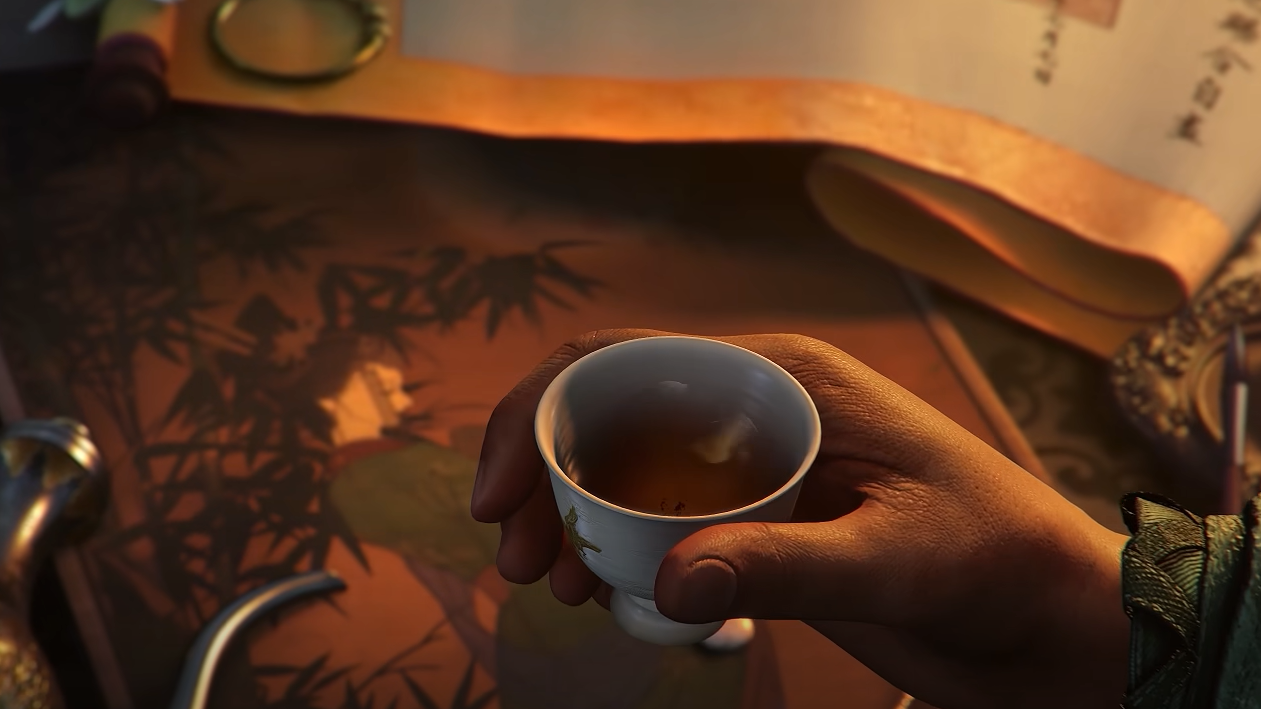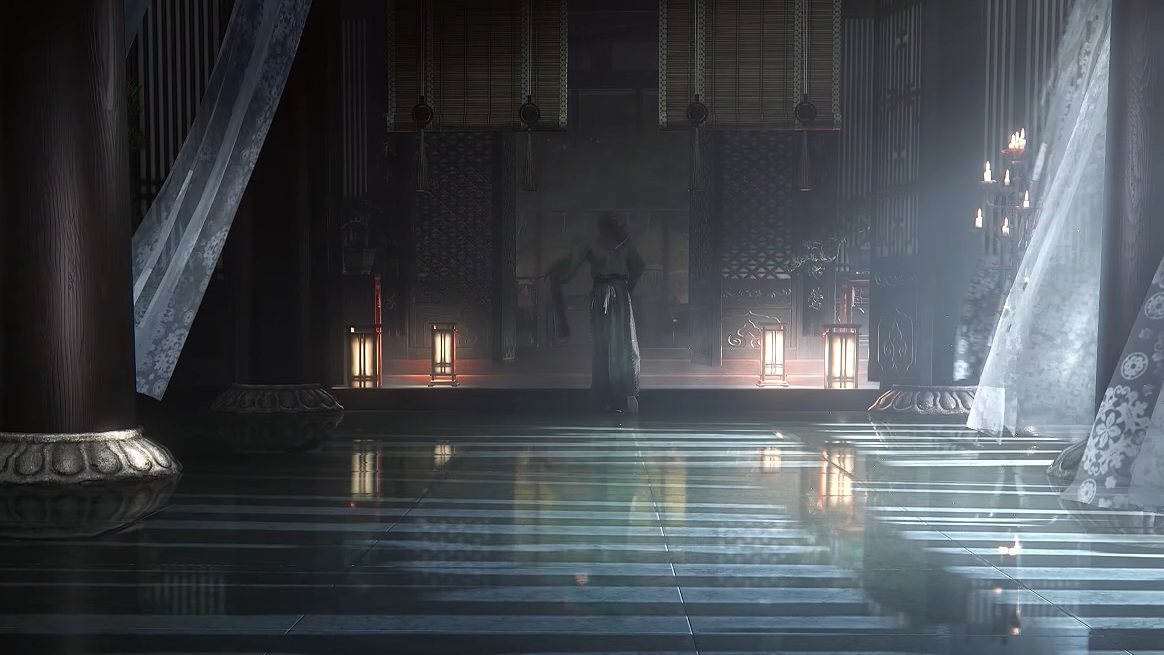Where Winds Meet hides a surprisingly deep profession system behind its wuxia combat. Careers – sometimes called jobs or occupations – turn your wandering swordsman into a doctor, debater, and even a kind of lawyer-for-hire, and they plug directly into the game’s bounty, crafting, and social systems.
Right now the playable careers are tightly focused: Healer and Scholar. Even with just these two, they add new card-based minigames, new ways to interact with NPCs, and new routes to long-term character power.
Where Winds Meet professions and careers, explained
Careers in Where Winds Meet are character-wide specializations that sit alongside your weapons, Mystic Arts, and Inner Ways. They don’t replace your combat build. Instead, they layer on:
- New non-combat activities (healing and debating).
- Mini-games that gate certain quests and world interactions.
- Crafting lines for consumables and talismans.
- Passive stat impact as you level them.
In the global release, the in-game “Jianghu Careers” list is small: Healer and Scholar. Both are accessible through a dedicated Careers Menu in the main menu, which shows each career, its level, and, if it’s still locked, simple hints on how to unlock it.
| Career | Core fantasy | Main gameplay | Key outputs |
|---|---|---|---|
| Healer | Physician treating illnesses and injuries | Turn-based healing card battles | Potions, cures for NPCs and players, stat-impacting progress |
| Scholar | Orator and legal advocate | Turn-based debate card battles | Talismans, cleared bounties, debate rewards, stat-impacting progress |
Separately, other “occupations” such as Doctor, Merchant, Orator, Architect, Bodyguard, and Ferryman are described within the broader game universe. These outline roles that focus on healing, commerce, construction, protection, or transport, but they are not part of the small, formally supported Jianghu Careers list in the launch build. The day-one, fully implemented career gameplay revolves around Healer and Scholar.

Healer career: how healing actually works
Healer turns medicine into a tactical minigame. Instead of a simple “use item to heal” interaction, the game treats disease as an enemy you fight with treatment cards.
- There are over ten distinct diseases scattered across NPCs and players.
- You can heal sick NPCs and other players but not your own character’s ailments.
- Each treatment session is a turn-based card battle where:
- You play treatment cards that consume a limited resource each turn.
- The “disease” pushes back with its own pattern of effects.
- Your goal is to “defeat” the illness by managing cards and resources efficiently.
Winning these healing encounters does more than clear a quest or patch up a stranger. The Healer profession also unlocks crafting recipes for combat potions. Those potions can be used for your own fights or sold to other players, feeding into the game’s economy.
Healer levels up through an item called a Career Notebook. You earn these from career-related side content and can also buy limited quantities in shops, with stocks refreshing weekly. Higher Healer levels improve your overall character stats, making the profession relevant even if you don’t care about the role-play of being a physician.
Scholar career: debates, Talismans, and legal defense
Scholar is the other side of the profession system: less about bodies, more about words. A Scholar leans on debate mechanics, persuasion, and a quasi-legal role inside the Jianghu bounty system.
How Scholar debates work
Debates are also structured as turn-based card battles, but the theme is rhetoric rather than remedies. You build and play argument cards that burn through a shared resource meter over time. Each card combines:
- A cost (how many points it uses to play).
- An effect (damage, silencing, defense, and so on).
- A “style” that interacts with other styles in a rock-paper-scissors loop.
The debate styles form a closed circle:
- Infuriating Nitpicker beats Yapping.
- Yapping beats Wild Boasts.
- Wild Boasts beats Heart Stab.
- Heart Stab beats Infuriating Nitpicker.
Reading and predicting your opponent’s style is as important as card value. Early Scholar quests walk through this by giving you specific cards such as Heart Stab and pitting you against NPCs using Wild Boast cards. You learn to chain damage, defensive buffs, and control effects like silence while keeping an eye on style advantage.
Unlocking Scholar and its first questline
The Scholar path begins once you can reach Moonveil Mountain at character level 13 or higher. There, an exploration quest called “Legacy: Scholar’s Path” appears on your map. The broad flow is:
- Travel to the Deeforage Grove area of Moonveil Mountain (Stillwind Slope is a convenient starting teleport point).
- Climb the mountain to meet Yan Huaijin, a respected literary figure who feels his words have lost their power.
- Enter the nearby building, climb to the second floor, and talk with Wei Rujun, a retired doctor about to burn his lifetime of medical notes.
- Use the Gift of Gab debate interface to challenge Wei Rujun. You fight using Heart Stab and related cards; he counters with Wild Boasts.
The debate is essentially a tutorial: you’re fed new cards in a controlled way, including effects like a temporary silence that both harms the opponent and prevents their next play. Once you win and talk to Wei Rujun a second time, your character promises to salvage his work. Back outside, Yan Huaijin acknowledges your success and that moment formally unlocks the Scholar career at Novice tier, along with an upgraded card (“Unarguable” at level 2) in the Infuriating Nitpicking style.
Like Healer, Scholar ranks increase with Career Notebooks that drop from debates or can be purchased in the shop, and each rank contributes to your overall stat growth.
Scholar as Jianghu lawyer
The most striking use of the Scholar profession appears in the Jianghu Bounty system. Characters can be hit with false accusations – sometimes even when they didn’t commit the crime – and the game sets a countdown before in-world authorities and, eventually, other players come after them.
Scholars can intervene on the “Career” tab of the Jianghu Bounty interface:
- Accept a case to argue in someone’s defense.
- Travel to the marked location.
- Win a debate mini-game to clear or mitigate the charges.
Successful defenses reward Bounty Tokens and other items, and they also reinforce Scholar progression. For defendants, hiring a Scholar consumes Bounty Tokens but can avoid arrest or player-driven bounty hunts. Crucially, Novice Scholars cannot argue their own cases; they must rely on others in the community to represent them.
Beyond legal work, the Scholar path also opens Talisman crafting. These consumables provide temporary stat boosts and other short-term buffs that feed directly into combat or exploration, giving debate-focused characters a tangible impact on fight readiness.
How careers fit with other systems: jobs vs. mystic arts vs. occupations
Careers sit in a crowded ecosystem of character systems in Where Winds Meet. The game also features:
- Mystic Skills (Mystic Arts) – active abilities like Tai Chi, Dragon’s Breath, or Drunken Poet, which you unlock via quests or skill theft and upgrade through materials such as Ebon Iron and Vicious Fruit.
- Inner Ways – passive internal arts that shape your stats and synergies with weapons and Mystic Arts.
- Weapon-based martial arts – combo sets tied to each weapon, from spears to umbrellas.
- Broader occupations – thematic roles like Merchant or Architect that describe potential gameplay directions focused on trade, construction, or protection.
Careers differ from Mystic Arts and Inner Ways in a few key ways:
| System | Primary focus | How it’s used | Progression driver |
|---|---|---|---|
| Mystic Arts | Combat and traversal skills | Active abilities on cooldown, used in fights and puzzles | Resources (e.g., Ebon Iron), tier and rank upgrades |
| Inner Ways | Passive stat tuning | Always-on effects that shape your build | Leveling and material spend |
| Careers (Healer, Scholar) | Non-combat minigames, crafting, social systems | Triggered via side quests, bounties, and the Careers Menu | Career Notebooks and career-related side content |
The important synergy is directional rather than mechanical. A Healer who grinds curing illnesses and brewing potions can sell those potions to fund gear upgrades and Mystic Art breakthroughs. A Scholar who farms Bounty Tokens and crafts talismans can supply their own raid group with buffs or barter them in the economy. While careers do tweak your stats, their main impact is opening new ways to earn and spend resources and to participate in world events that pure combat builds might ignore.
How to unlock and upgrade careers efficiently
Unlock flow for Healer and Scholar
Careers are tied to their own side content rather than to the main story:
- Healer unlocks through career-focused side quests that act as tutorials for the healing card game. These quests introduce you to treating sick NPCs and, later, players.
- Scholar unlocks through the Legacy: Scholar’s Path exploration quest on Moonveil Mountain once your character reaches level 13 and has access to the region.
Career-related content is easy to identify in the quest lists and exploration journal; it’s labeled as Legacy, Career, or Gift of Gab–style activities, and often sits alongside other Jianghu legacy quests. Finishing these early ensures your careers climb in step with your combat level instead of lagging behind.

Career Notebooks and weekly shop rotations
Career progression hinges on Career Notebooks. They serve as universal experience items for both Healer and Scholar:
- Earned by completing healing encounters, debates, and other career-specific quests.
- Sold in limited quantities in shops, with stock resetting every week.
Spending Career Notebooks raises career levels, and those levels in turn influence your character’s stats. That makes them worth prioritizing, even if you treat the minigames as side distractions.
Because shop stock is capped per week, any serious focus on professions benefits from a routine:
- Clear available career quests as they appear.
- Check the relevant merchants after the weekly reset to buy additional Career Notebooks.
- Balance spending between Healer and Scholar instead of pushing only one, so you retain flexibility for both healing and legal work.
Why professions matter even if you only care about combat
It’s easy to think of Where Winds Meet professions as optional flavor, but they directly feed high-end play:
- Healer provides potion crafting, letting you stockpile powerful consumables for boss fights or sell them for currency.
- Scholar crafts talismans that grant temporary stat increases, giving a measurable edge in difficult encounters.
- Both careers influence your core stats through leveling, making them another lane of character growth alongside Inner Ways and gear upgrades.
- The Jianghu bounty system occasionally forces interaction with debates and legal defense; ignoring careers can mean relying on other players more often than you might like.
Careers also change how the world feels. Sick or angry NPCs scattered across the map become opportunities instead of background details. False accusations and bounty hunts shift from pure punishment to a chance for social play, as Scholars and clients negotiate over Bounty Tokens and outcomes.
Together, Healer and Scholar ensure that “where winds meet professions” isn’t just a question about side jobs; it’s a quiet statement about how the game wants players to live in its world – treating ailments, arguing cases, and building a reputation that extends far beyond the edge of a sword.

